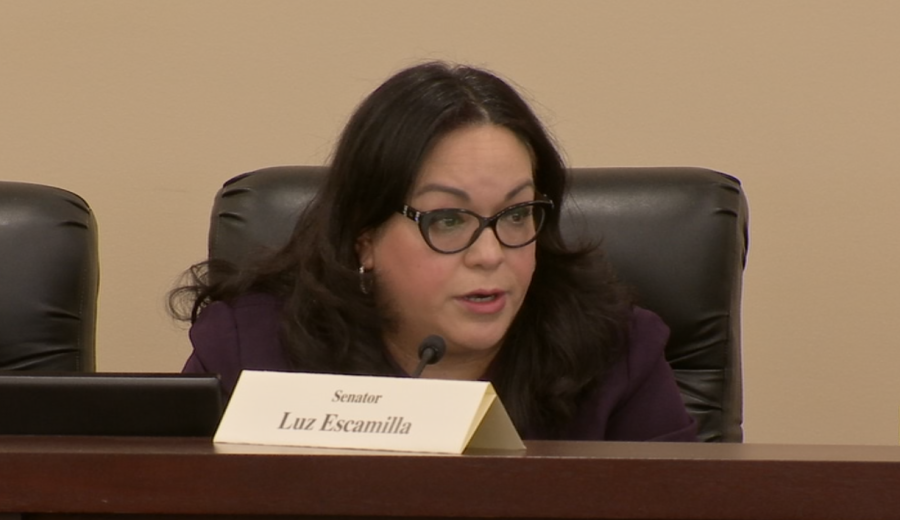Bill that’d set minimum mandatory sentences for DUI homicides gets favorable recommendation
- Oops!Something went wrong.Please try again later.
- Oops!Something went wrong.Please try again later.
- Oops!Something went wrong.Please try again later.
SALT LAKE CITY (ABC4) — Relatives of people killed by drunk drivers testified Thursday in support of a bill that would update Utah’s criminal code to give drivers convicted of DUI homicide a minimum sentence of five years in prison.
Lisa Mitchell, of West Jordan, testified before the Senate Judiciary, Law Enforcement and Criminal Justice Committee, telling the lawmakers that her son, Eli Mitchell, was killed by a drunk driver in April of 2022.
Bill changing how books could be removed from Utah school libraries now headed to Gov. Cox’s desk
Although the driver got the maximum sentence of 1-15 years in prison, the family was immediately thrown into a situation following the sentencing where they had to deal with the pardons and parole board. Mitchell said she doesn’t want other families to go through the same painful process so soon after losing a loved one.
“There is no certainty for the victim in this situation,” she said. “I feel like we have been revictimized over and over again.”

Rep. Andrew Stoddard, D-Sandy, is running House Bill 273. He said that Utah already has minimum floor sentences for certain types of egregious crimes, and DUI-related homicides should be included among them.
“I brought this bill in working with victims who have been distressed once their offender is sentenced to prison and they start receiving notices right away,” he said. “It doesn’t give [the victim’s family] time to heal, to grieve.”
No one-size-fits all
Standing against the bill was criminal defense lawyer Mark Motif, who spoke to the committee on behalf of the Utah Defense Lawyers Association. He said that having mandatory terms eliminates a judge’s ability to make the right call in difficult cases.
“When it comes to these kinds of cases, there’s not a one-size-fits-all for deaths resulting from DUIs,” Motif said. “You could have an individual who was driving intoxicated who had the misfortune of causing the death of his own child, and yet he would have to serve five years minimum mandatory.”
While the committee voted to give the bill a favorable recommendation, one lawmaker couldn’t get behind the legislation in its current form. Sen. Daniel Thatcher (R-West Valley City) said there are always exceptions in criminal cases that lawmakers don’t foresee.
“So if it’s a mandatory minimum with absolutely no consideration for intent or for risk factors … then I don’t think I can get there,” he said, adding that he would support the bill if instead of a mandatory minimum it set a sentencing guideline that a judge could only deviate from with good cause.
The current language of H.B. 273 sets a mandatory minimum sentence of five years for DUI homicide officers. However, Stoddard said there were safety valves written into the bill for people who have bad reactions to medications taken correctly, or who plead guilty to lesser charges than second-degree homicide.
Sen. Luz Escamilla, D-Salt Lake City, became emotional as she spoke in support of the bill before she and her fellow committee members voted 3-1 to recommend it.
The Senate Minority Leader said two of her nephews were killed and a third was seriously injured by an intoxicated driver who struck them in their front yard nearly 20 years ago.
“I think [the legal process] disproportionately impacts the survivors when they don’t have resources … don’t understand the system,” she said, adding that the perpetrator in that case walked after only a year-and-a-half behind bars.
H.B. 273 is now on its way to the Senate floor. Earlier this month, it passed the House on a 46-21 vote.
For the latest news, weather, sports, and streaming video, head to ABC4 Utah.

